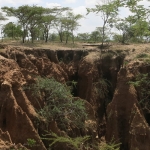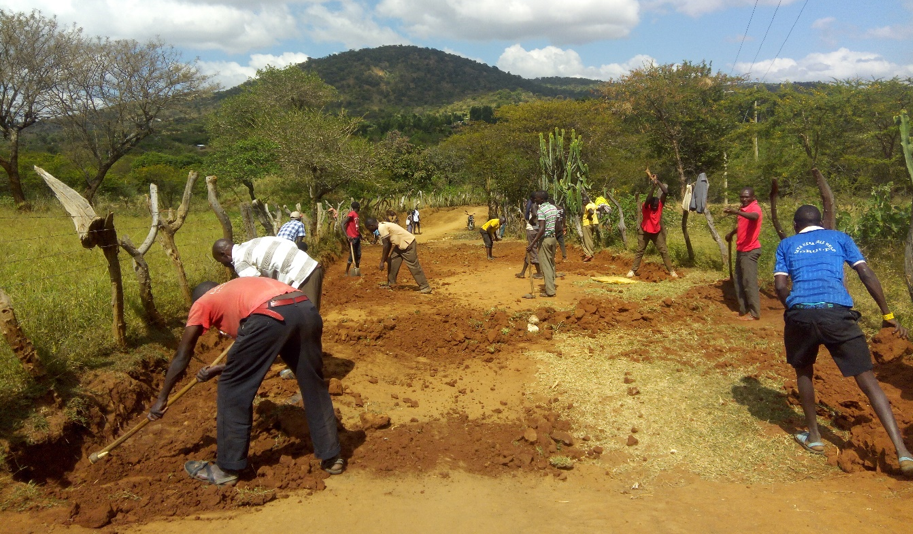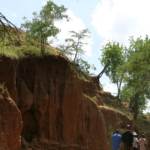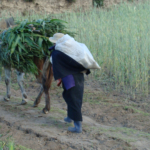


University of Eldoret
Kapkitony Farmer Group, Korellach Parak Farmer Group, Kaporowo Farmer Group
Kenya
9/2019—9/2020
Communities living in arid and semi-arid lands (ASALs) are amongst the poorest and depend on pastoralism or agro-pastoralism. Their livelihoods are threatened by continuing land degradation due to frequent and prolonged droughts, declining vegetation cover, and soil erosion. Sustainable interventions are urgently needed to ameliorate the situation.
West Pokot is one of the ASAL regions facing severe land degradation, and the Drylands farmer research network (FRN) project has been working with communities in the area over two previous phases. The project initially focused on rehabilitation of degraded lands. In response to farmer priorities and some initial successes, the project team has shifted towards land rehabilitation for sustainable crop and fodder production. A vibrant “merry-go-round” initiative allowed labor sharing among 92 members who have constructed seven sand dams and 18 km of terraces, established farm enclosures, and enforced restrictions on sand harvesting.
Participatory crop research involved farmers selecting food and fodder crops from a pool of local and improved legume, cereal, and fodder grass varieties. However, progress towards improved food security and increased vegetation cover has been limited by the high incidence of pests and diseases, weak seed systems, and declining soil fertility. The community wants more local food crops to be included in the set of options, including pumpkins and sweet potatoes as strategic food security crops. They have also proposed planting of various tree species for fruit, fodder, fuel, medicine, and soil conservation. Finally, the project is proposing value addition activities to provide a tangible incentive for community involvement and a source of income for youth and for women and men farmers
To strengthen farmer-led rehabilitation of degraded lands to improve sustainable production of multi-purpose and drought resilient food, fodder, and tree production in Kenya’s West Pokot County.
Specific Objectives Include:
Agro-pastoral communities living in Kenya’s arid and semi-arid lands suffer high levels of food insecurity and land degradation. There is an urgent need for sustainable interventions to address this.
The proposed project will build on earlier successes and will strengthen the West Pokot community to work together to rehabilitate their degraded lands, conserve water and soils, and improve tree cover, while producing food and fodder crops adapted to their arid conditions. The project will generate new knowledge on community-led approaches for land rehabilitation, as well as on food and fodder crops to improve food security and livelihoods in ASAL areas. The team will target findings to policymakers to influence policy on rehabilitation of drylands and the project will strengthen the capacity of two PhD and six Masters students, as well as of farmers and extensionists in various aspects of dryland agroecology management. It will establish a Dryland Rehabilitation Resource Center as a learning point for practitioners and communities.




